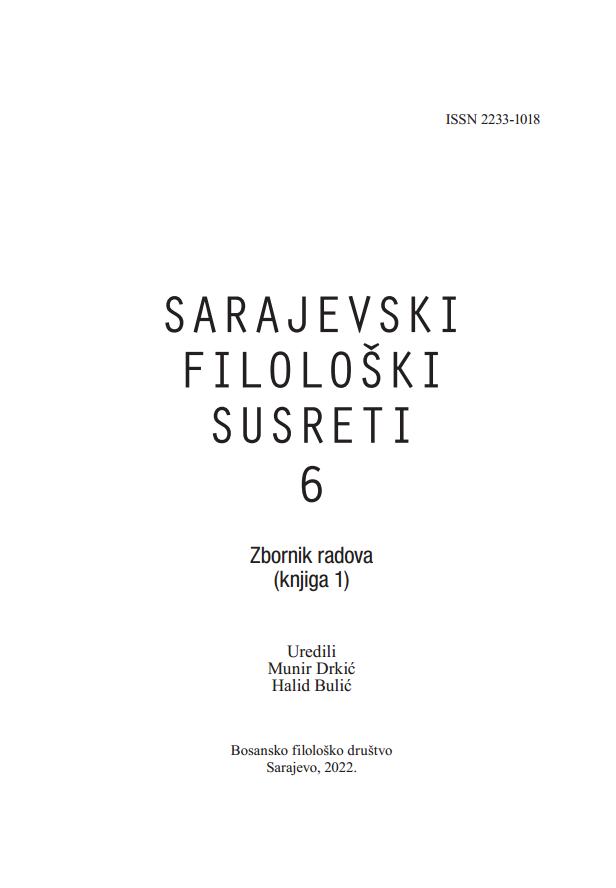O specifikatorima aspektualnosti u bosanskome jeziku
On the specifiers of aspectuality in the Bosnian language
Author(s): Ismail PalićSubject(s): Syntax, South Slavic Languages
Published by: Bosansko filološko društvo
Keywords: aspectuality (total and durative); specifier; perfective and imperfective verbs; polarity; scope of negation;
Summary/Abstract: The Bosnian language has a small number of specifiers of aspectuality, among which they are još (uvijek), već, tek, više / dalje and i dalje. They are relatively sensitive to polarity: već and tek characteristically come in affirmative sentences, više and dalje in negatives, and još (uvijek) and i dalje in affirmative and negative ones. All of them are high frequency functional units with clearly delimitated use. The specifiers of aspectuality never function as adverbs of time, but exclusively as secondary markers of aspectuality. The specifiers još (uvijek) and već in constructions with imperfective verbs indicate that the situation continues, that is, that it has begun. In addition to the present, they can also refer to past and future situations, but then they usually have additional, specific meanings. These specifiers can also carry various strong implicatures, such as imminent realization of the situation, the certainty of the referred state, allusions to the unfavourable state of affairs, etc. The specifier i dalje is competitive with the specifier još, but it is less commonly used. The specifier više (which is mostly competing with the specifier dalje) in constructions with imperfective verbs indicates that the situation does not exist, i.e. that it does not continue, with the presupposition of its previous existence and the implicature of its later existence. The specifier tek in constructions with imperfective verbs indicates a phase of the situation that is earlier than assumed or expected. Therefore, it is characteristic that this specifier (together with the specifier već) is used in time expressions (cf. Tek / već je 12 sati). When it comes to the relationship between the specifiers of aspectuality and the scope of negation, još and i dalje normally have a scope over negation, but it is not impossible for them to be within negation as well. The narrower or broader semantic scope of these specifiers mainly directly affects the pragmatic interpretation of the corresponding sentences. That is so because there are significant differences regarding the (non)existence of certain presuppositions and implicatures. On the other hand, the relation of the scope of the specifiers više and već with negation is generally not pragmatically particularly significant. Finally, specifiers can also be combined with perfective verbs construction. Još then normally comes in negative sentences, and in affirmative and interrogative ones only in the interpretation of the serial state. Već in affirmative and interrogative sentences is used similarly regardless of the type of verb with which it is combined. However, as total aspectuality is not characterized by segmentation on the timeline, već in sentences of this kind does not indicate the begining, but emphasizes the totality of the sitaution. Više comes in negative and interrogative sentences that denote serial states and refer to the continuation of the state of non-actualization of subsituations, with the presupposition of their earlier actualization. In the end, tek works very similarly in constructions with verbs of both aspects, indicating either that the durative situation is at a low level of progress or that the total situation is actualized at an unexpected time, unsuitable for future events.
Journal: Sarajevski filološki susreti: zbornik radova
- Issue Year: 6/2022
- Issue No: 1
- Page Range: 70-85
- Page Count: 16
- Language: Bosnian

